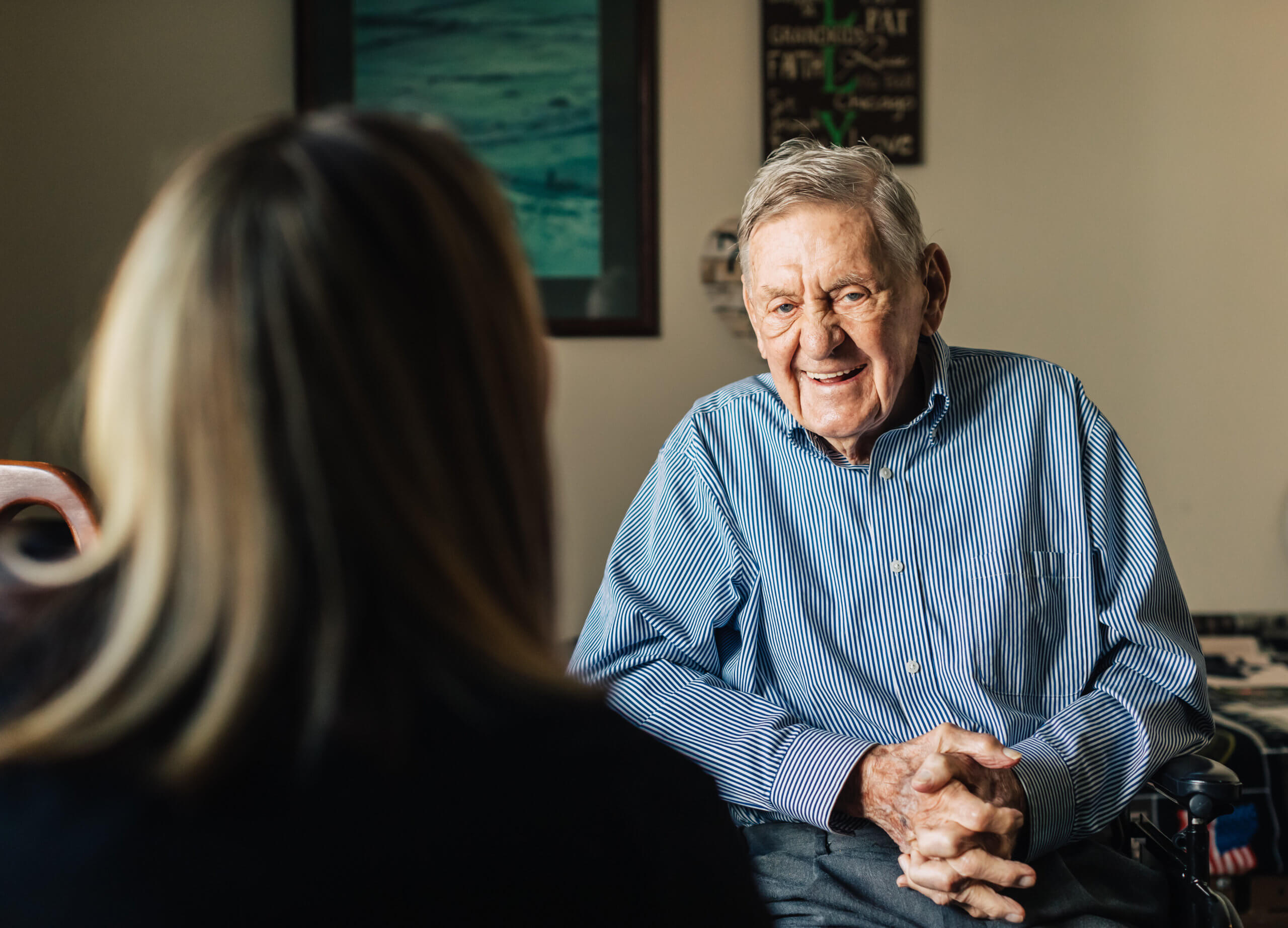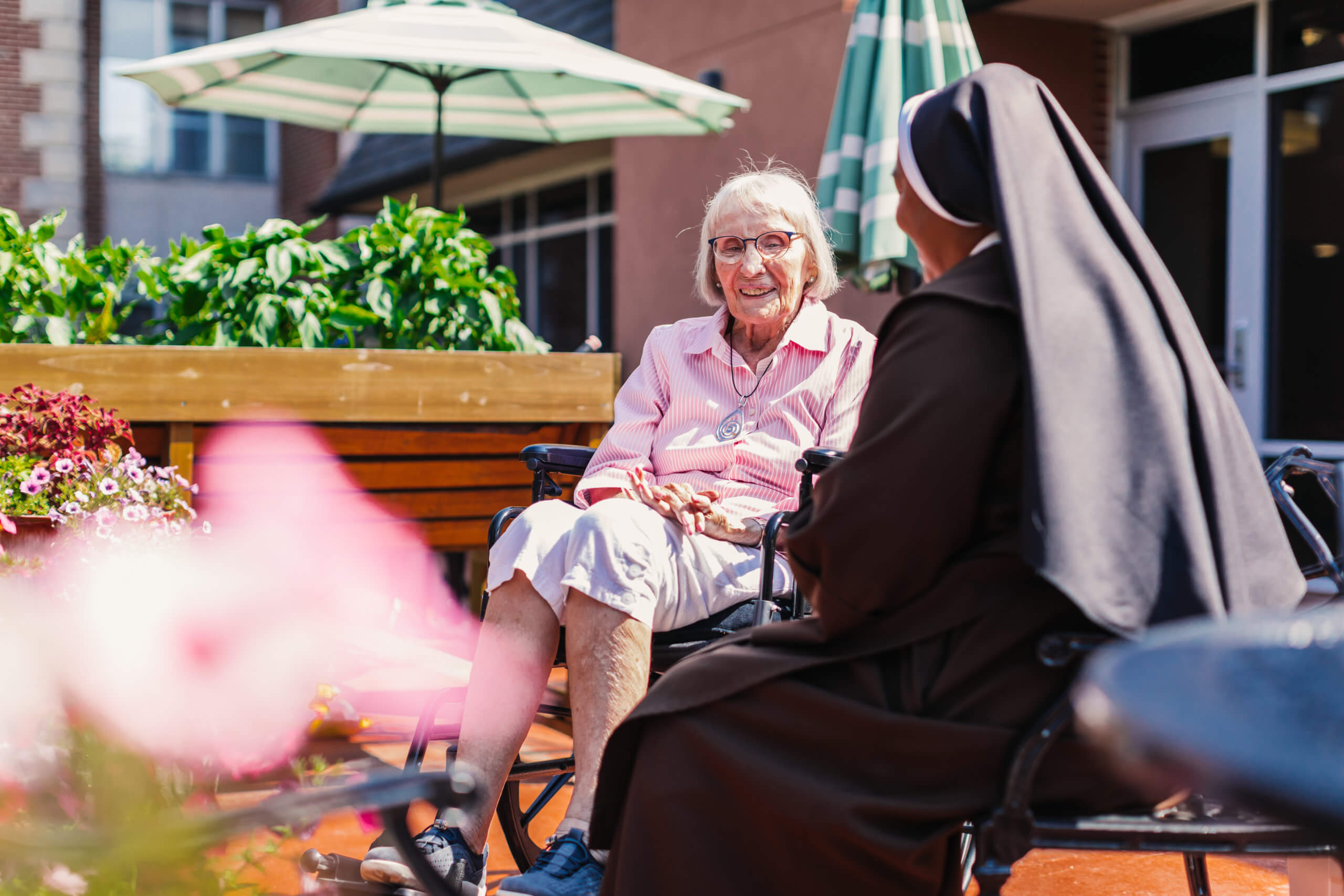10 Signs It Might Be Time for Hospice Care
Making the decision to enter end-of-life care can be a difficult one. According to a national survey, only 32 percent of people have had the conversation with their family — though almost all feel it’s an important one to have. While every individual case is different, there are some signs that indicate it might be time for your loved one to enter hospice care.
How will you know when it’s time for hospice for your loved one?
1) A doctor has given your loved one a prognosis of six months or less.
Hospice is holistic care and support typically reserved for someone with a life-ending condition who has six or fewer months to live, as determined by a licensed physician.
2) They’re experiencing a dramatic weight loss or change in appetite.
An extremely light appetite and minimal thirst could be a sign of the body beginning to shut down. If you notice dramatic changes in your loved one’s eating and drinking habits — leading to big changes in weight and body composition — a call to hospice could help.
3) You’re noticing decreased alertness, withdrawal and consistent confusion.
For some, nearing the end of life causes them to withdraw from everyday situations, appear unaware of their surroundings or confused about where they are and who they’re with. It might seem like your loved one is tuning out. While these signs can be alarming, they are common.
4) Your loved one is sleeping longer and more frequently.
Near the end of life, longer and more frequent sleeping is normal. The body begins to slow down and needs more chances to recharge.
5) They are no longer able to perform everyday tasks.
A decline in the ability to perform daily tasks including eating, getting dressed, walking or using the bathroom are signs that it might be time for hospice.
6) You’ve seen a sudden, rapid mental decline.
Similarly to consistent confusion, a rapid decline in mental capacity can mean care is needed. Things to be on the lookout for are personality changes, hallucinations, depression and loss of motivation.
7) You’ve seen a sudden, rapid physical decline.
Physical decline is typical in older age, but there is a difference between normal decline and rapid decline. Sometimes frequent falls that cause larger, longer-lasting bruises are a sign of rapid decline. Difficulty breathing and more consistent pain are also possible symptoms.
8) Pain is becoming chronic and unmanageable.
Not all pain is indicative of the need for hospice care. However, if you’re monitoring pain and it is progressively worsening and current medications are no longer effective, it may be time to contact hospice.
9) You’re making frequent emergency room visits or hospital trips.
Hospice could be the next step if the emergency room and hospital are becoming like a second home. When you find yourself there often, for increasingly longer visits or worsening reasons, it’s time to start considering a plan for hospice care.
10) Previous treatments are beginning to become ineffective.
Hospice focuses on caring for — not curing — patients.
Does my loved one need palliative care or hospice care?
If treatment is still a possibility, palliative care might be a better choice for your loved one. Palliative care provides treatment for patients facing serious and life-threatening illnesses. But unlike hospice care, palliative care can be accessed at any point during an illness and alongside curative treatment.
Does hospice hasten the dying process?
Hospice does not hasten the dying process. In fact, studies show hospice care can actually increase life expectancy by managing symptoms and providing holistic support.
Call Emmanuel Hospice When
If, alongside doctors and caregivers, you and your loved one have decided to discontinue treatment and shift the day-to-day focus from a cure to comfort, it is time for hospice. Hospice is not about giving up, it focuses neither on prolonging nor ending life, but instead on delivering end-of-life care, maximizing comfort and reducing pain. It’s about deciding how you want to live in the moments you have left.
People sometimes wait too long before calling hospice in. “We hear that a lot,” says Layna Miron, Hospice Aide Team Lead. “It’s perceived as a scary thing, but it doesn’t have to be, especially when people realize what a service we provide. We end up taking a lot of stress off the family.” When in doubt, Miron says “sooner is usually better than later” to initiate contact.
At Emmanuel Hospice, it is our calling to make every moment meaningful — for you and your family. Our team of doctors, nurses, social workers, hospice aides, spiritual caregivers, grief support specialists and volunteers work together, rallying around individual needs to care for the whole person — mind, body and spirit.


